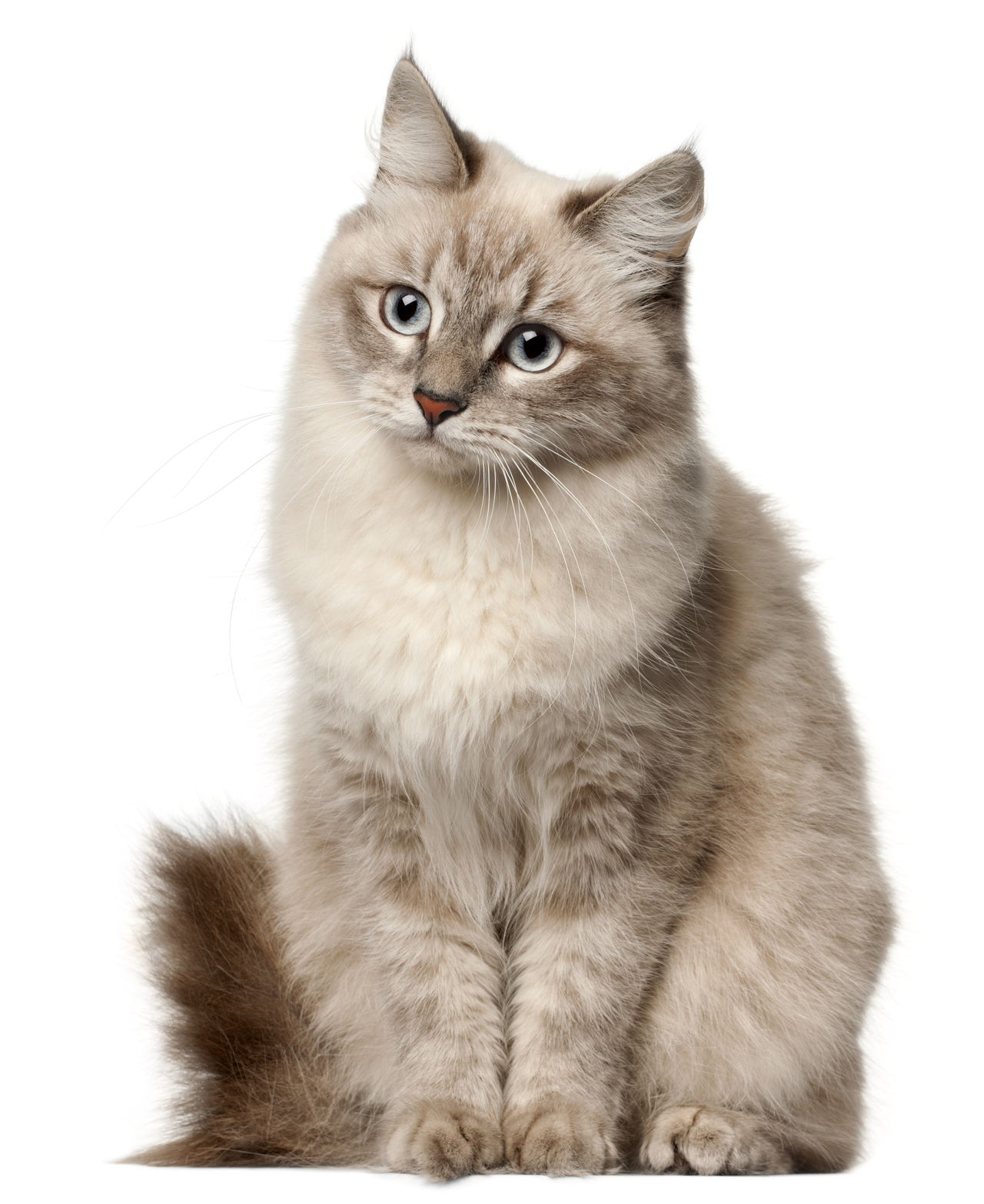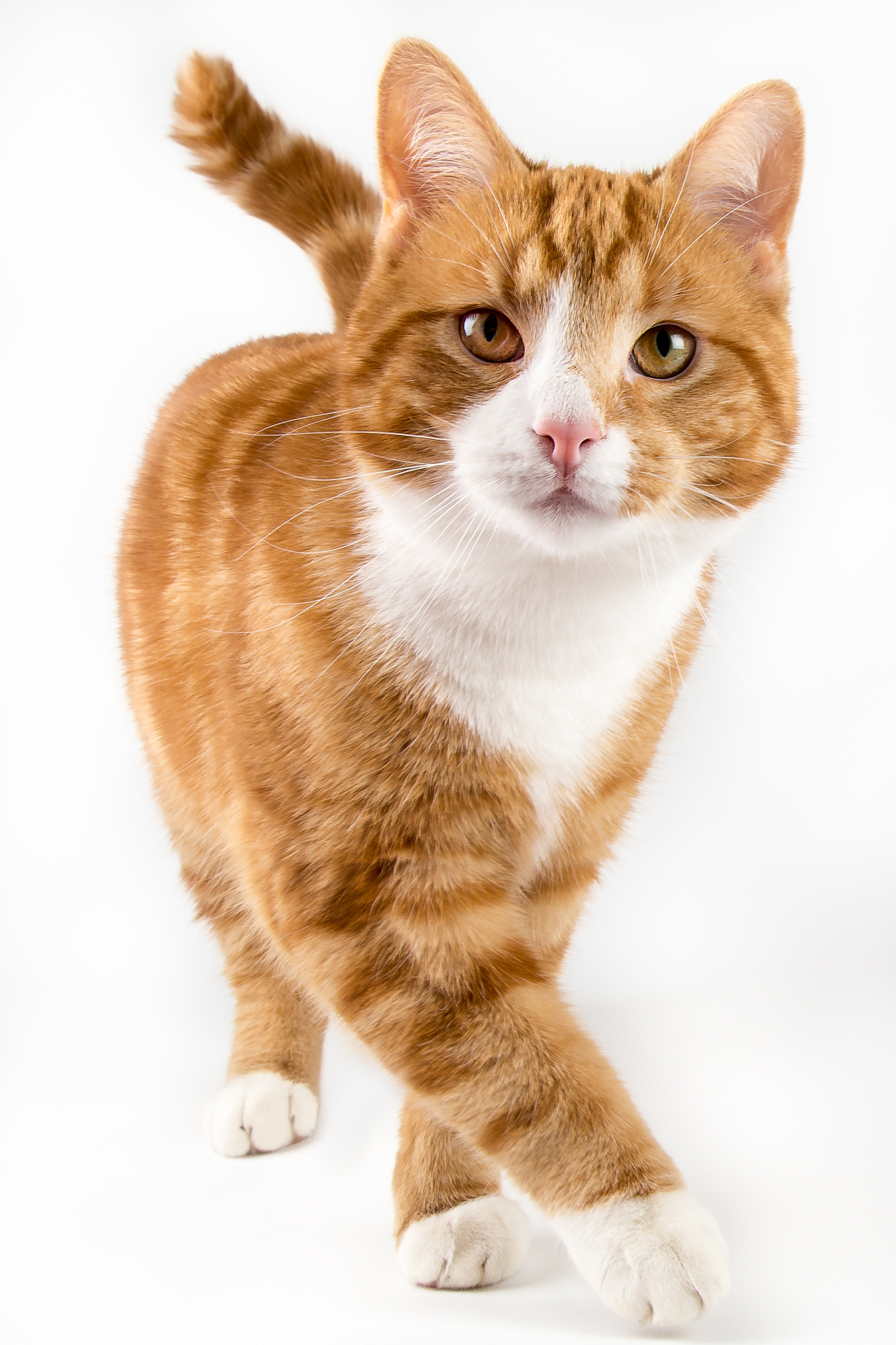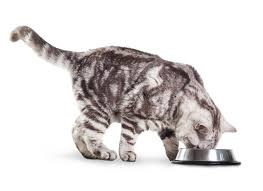|
Intestinal Lymphoma in Cats: Symptoms & Natural Treatments
Feline intestinal lymphoma is the most common form of lymphoma in cats. Finding out your kitty has intestinal lymphoma can be devastating, but there is hope! Lymphoma occurs when normal lymphocytes (white blood cells essential to the immune system) become cancerous. This type of lymphoma often develops after cats have inflammatory bowel disease (IBD) or irritable bowel syndrome. Most cats with feline intestinal lymphoma are seniors (9–13 years) and have a history of vomiting, diarrhea and/or inflammation of the intestinal tract. Life expectancy varies depending upon the type and treatment. A holistic approach using supplements and diet changes can help extend the life expectancy and quality of life for your cat.
Natural Treatment for Intestinal Lymphoma in Cats
Holistic Treatment for Feline Intestinal Lymphoma
These home remedies have been used successfully by our pet nutritionist in veterinary hospitals to help pets with feline intestinal lymphoma. Pet Nutritionist Susan Davis has extensive experience helping cats with feline intestinal lymphoma, as she offered holistic consultations to cancer patients at a leading veterinary oncology hospital and VCA hospitals in Orange County, CA, for over 10 years. Our holistic supplements for intestinal cancer in cats are recommended by veterinarians nationwide. These supplements can be used in conjunction with the conventional veterinary treatments prescribed by your veterinarian or veterinary oncologist.
Inflammatory Bowel Disease (IBD) Kit - The IBD Kit is essential for cats with intestinal lymphoma, as it helps improve digestive symptoms, reduces pain (hunching over, tummy noises) and enhances absorption of nutrients. The IBD Kit is easy to administer, and cats experience relief within a few days. No natural treatment for intestinal lymphoma in cats is complete without our IBD Kit.
Gastro ULC - An all-natural product consisting of herbal remedies, Gastro ULC helps heal the lining of the stomach, reduces inflammation in the mucosal lining of the GI tract and enhances the natural digestive process.
Happy Paws Organic Hemp Extract - A few drops of this professional veterinary strength oil can help reduce inflammation and support a healthy immune system. Controlling inflammation is a core part of cancer treatment, and that is the main characteristic of this feline intestinal lymphoma oil. The ingredients in Happy Paws are being researched for their beneficial effects on cancer. Anecdotal reports include reduced pain, inflammation and discomfort. Each 1oz bottle contains 550mg of full spectrum hemp extract in an unflavored all-natural coconut oil base. 100% organic. Made in the USA.
Lypozyme - LypoZyme is a gentle, easy-to-administer digestive enzymes formula that helps with the digestion of protein, fats and carbohydrates. It’s gentle enough for a tiny pet.
Immune Harmony - A unique, patented plant sterol formula, Immune Harmony is tolerated well by even the smallest pets. This product is helpful for all immune conditions and can be used in conjunction with chemotherapy and/or prednisone. Rather than overstimulating your pet's immune system, this wonderful product helps the body to rebalance immune function.
Purrfect Pet CoQ10 - Kaneka Ubiquinol™ helps to protect cells, tissues and organs from oxidative damage caused by free radicals. According to the National Cancer Institute, animal studies found that CoQ10 boosts the immune system and helps the body fight certain infections and types of cancer.
PureOcean Wild Omegas - PureOcean Wild Omegas are made from wild-caught sardines, anchovies & mackerel. They have a natural fishy flavor and many cats love the taste. Omega-3 fatty acids, particularly EPA (eicosapentaenoic acid) and DHA (docosahexaenoic acid), have anti-inflammatory properties. Omegas may help reduce inflammation in the digestive tract and potentially provide some relief from symptoms. Cats with intestinal lymphoma may experience changes in their appetite, digestion, and coat condition, so adding omega-3s can contribute to overall health. Excellent value. One bottle lasts 4-6 months for cats.

What is Feline Intestinal Lymphoma?
Lymphoma is a cancer of the lymphatic system, an organ system that supports the circulatory and immune systems. Lymphocytes carry lymph fluids with oxygen and nutrients to your cat's cells and also remove bacteria, viruses and waste. Since lymphocytes travel throughout the blood, lymphoma in cats is considered a systemic condition, meaning the cancer can travel through the entire body. With lymphoma, surgically removing a tumor will not remove the cancer. Because of this, it is incredibly important that you utilize a prescribed feline intestinal lymphoma treatment (prescribed by your veterinarian or veterinary oncologist) to extend your cat’s life expectancy. Natural supplements for intestinal cancer in cats should be included in that treatment plan for a comprehensive approach.
The most common lymphoma in cats occurs in the stomach and intestines, a condition called intestinal lymphoma. This type makes up almost 70% of feline lymphoma cases. Cats with intestinal lymphoma tend to be seniors (aged 9–13 years on average) with a history of chronic gastrointestinal issues, such as IBD, IBS, weight loss, vomiting, diarrhea and/or inappetence. The majority of feline lymphoma cases are low grade or lymphocytic. The symptoms of and treatments for these cases are basically the same as severe inflammatory bowel disease.
Feline IBD vs. Intestinal Lymphoma
Veterinary medicine is faced with a challenge in distinguishing between feline IBD vs intestinal lymphoma as they can have very similar symptoms. Diarrhea, vomiting, weight loss and inappetence are clinical signs of both IBD and feline intestinal lymphoma.
No single cause for feline IBD has been identified. The interactions between a cat's immune system, gut microbiome and dietary proteins may hold the key. Cats can eat common food allergens, such as poultry, fish and grains, for years before the chronic inflammation and irritation of the intestinal tract begin to affect the normal function of the intestines. Once the function is compromised, the symptoms of IBD become more serious and frequent. By eliminating food allergens and adding natural supplements to calm and soothe the digestive tract, you can help minimize these uncomfortable symptoms.
Cats with inflammatory bowel disease (IBD) are at greater risk of developing intestinal lymphoma. The chronic intestinal inflammation from IBD is considered a precancerous condition. Lesions and chronic inflammation may mutate and become cancerous in a large percentage of cats with IBD.
Feline Intestinal Lymphoma Symptoms
- Decreased or no appetite
- Weight loss
- Vomiting
- Diarrhea
- Increased water consumption and urination
- Lumps on the side of the abdomen

Other Types of Feline Lymphoma
- Mediastinal Lymphoma occurs within the chest cavity. The mediastinum is a connective tissue that stabilizes the organs in the chest: the heart, esophagus and trachea. It causes respiratory difficulties such as open-mouthed breathing and persistent cough. As the condition progresses, the chest area may begin to fill with fluid, making it difficult for a cat to fully inflate its lungs.
- Renal Lymphoma starts in the kidneys, and the symptoms resemble those of kidney failure. These signs may include decreased appetite, weight loss, increased urination and thirst, and vomiting. The cancer cells begin to replace healthy kidney cells, affecting the ability of the kidneys to filter toxins from the bloodstream.
Feline Viruses & Lymphatic Cancer
Cats with the feline leukemia virus (FeLV) and feline immunodeficiency virus (FIV) are at a higher risk of developing lymphoma. Cats of any age, breed and sex can be affected. Kitties with FeLV tend to develop lymphoma at a younger age, but with increased rates of vaccination, the number of cases has significantly declined. Almost 80% of cats with mediastinal lymphoma and 50% of cats with renal lymphoma test positive for feline leukemia. Vaccinations can prevent the spread of feline leukemia virus (FeLV).

Diet for Cats With Intestinal Lymphoma
In addition to conventional cancer treatments, it is very important to change the diet of these cats to an anti-inflammatory, low-allergen diet. Changing your cat's diet can help it to feel better. Grains and poultry can contribute to long-term inflammation (please see food allergy articles). Cats with intestinal lymphoma are often treated with chemotherapy along with diet changes and natural supplements.
Need Help?
If you have questions, please feel free to email us at [email protected]. We will be happy to provide you with additional information about our holistic treatment for feline intestinal lymphoma, but please know that due to veterinary regulations, we cannot provide individualized consultative advice without a physical exam.
|